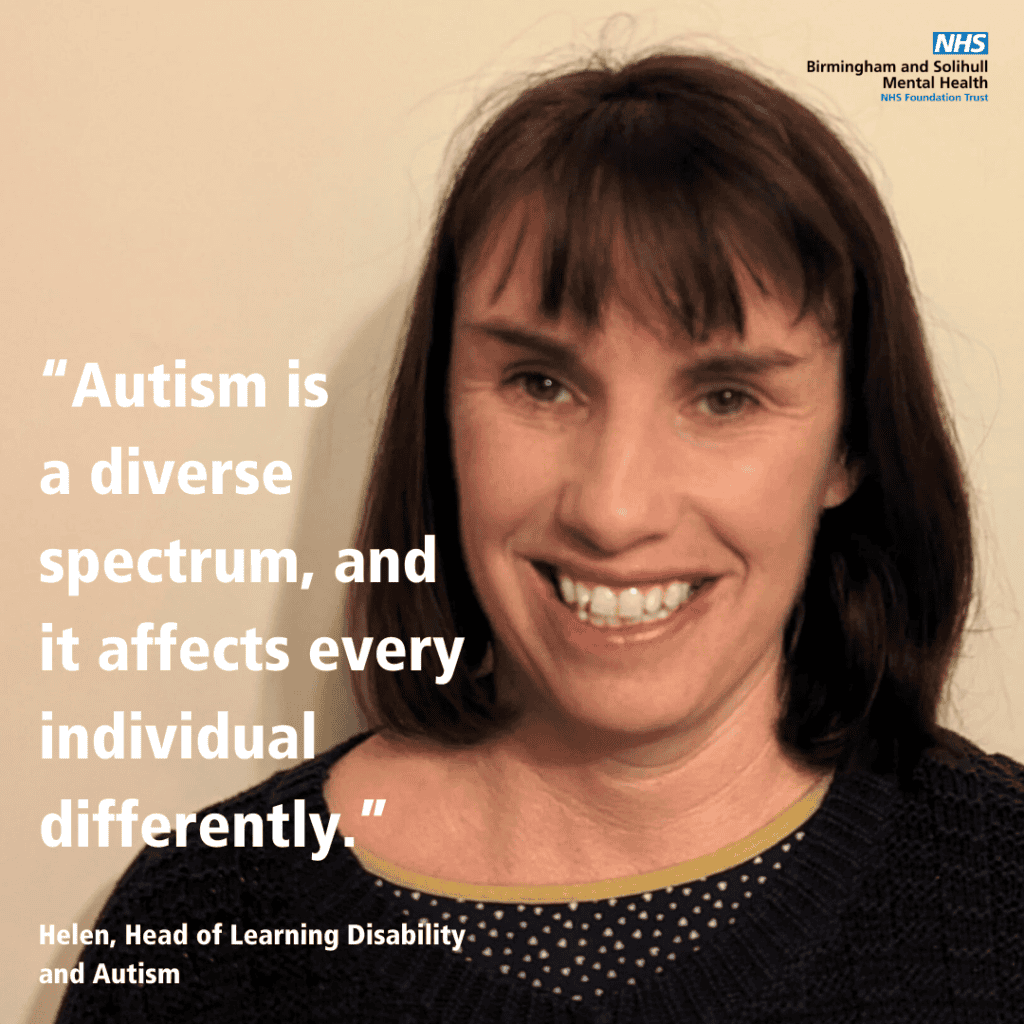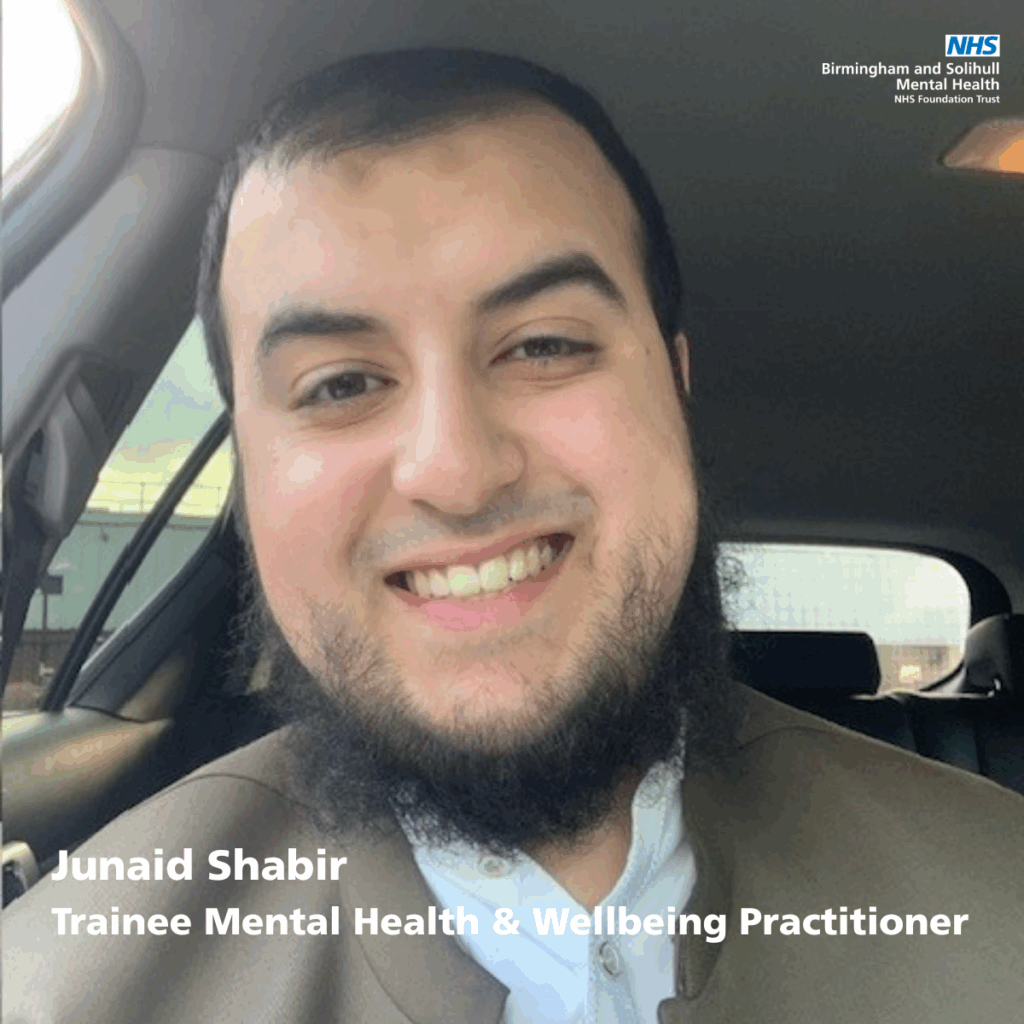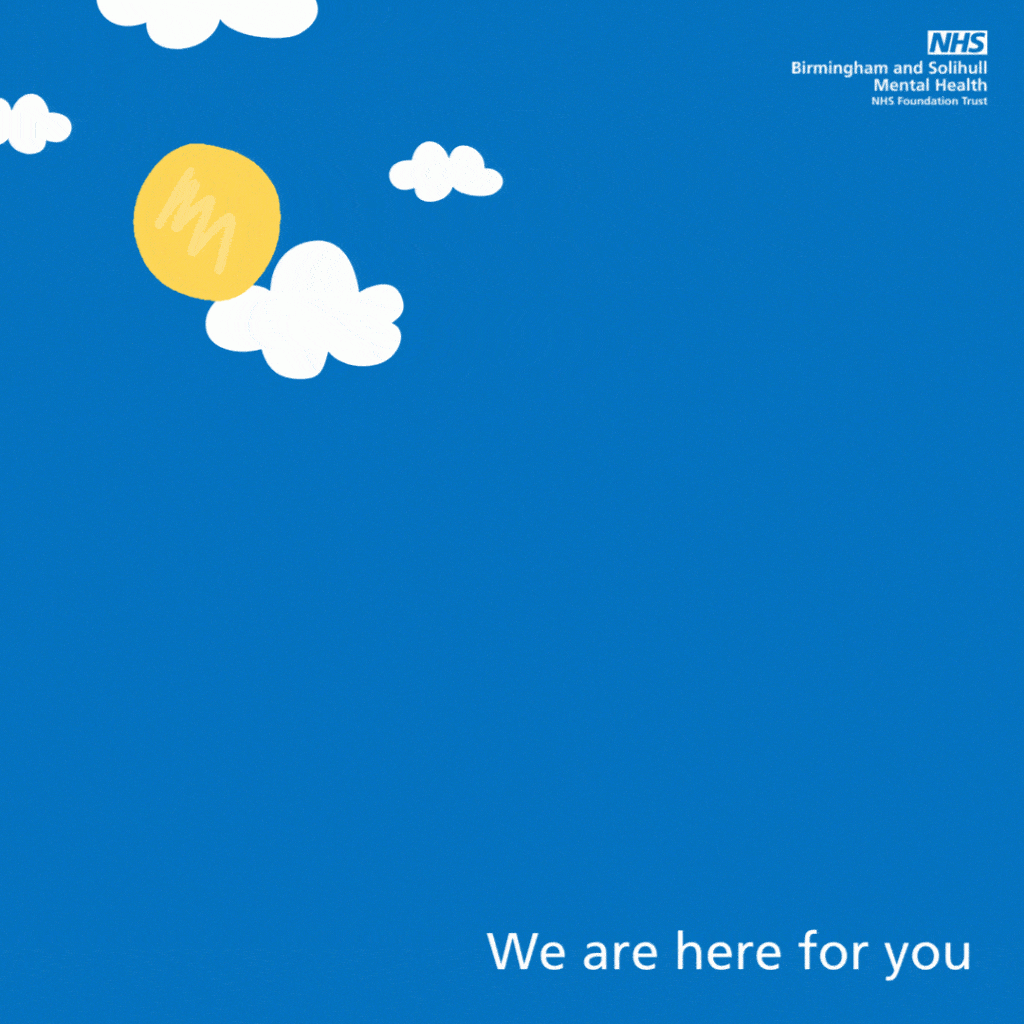Autism is a diverse spectrum, and it affects every individual differently.
Did you know that 70% of autistic people experience mental health problems?
Just like everyone, autistic people can have good mental health, however around 70% have a mental health condition such as anxiety, depression, attention deficit hyperactivity disorder (ADHD) or obsessive-compulsive disorder (OCD).
There is little research into why this is, but it may be because autistic people:
- can struggle to try to fit into or make sense of the world, which can lead to feelings of depression and anxiety
- may face delays in getting their mental health problems diagnosed
- are more likely to face stigma and discrimination
Head of Learning Disability and Autism, Helen Jones is a learning disability nurse and a university lecturer by background. Below, she explains more how she supports our service users and patients at the Trust and the challenges that people with autism can face.

“In my role, I help to improve care pathways and health outcomes for people with a learning disability and/ or autism across our services. I am committed to making sure that our staff are skilled and able to deliver the best care to those with learning disabilities and autism. I will also work to help strengthen the voice of the patients and service users who are supported by BSMHFT.
Autism is a diverse spectrum, and it affects every individual differently. People with autism will experience various challenges within society but will also have different strengths that make them unique. Challenges may be related to communication, social interaction, or sensitivity to the sensory environment.
“One challenge that many people with autism face is getting the right support from mental health, education and social care services or being misunderstood by those around them. It is important that we all continue to strive to make our society and our services work better for everyone.”
We are committed to enhancing and developing the support we provide for people with autism. If you are struggling with feelings of depression, excessive worry, social anxiety, post-traumatic stress or obsessions and compulsions, our staff are here to help and can tailor our talking therapies to suit you.
Talking therapies are offered in different ways, including:
- using a self-help workbook with the support of a therapist
- as an online course
- one-to-one sessions either in person, over the phone or as a video consultation
- in a group
Your GP can refer you or refer yourself at nhs.uk/talk.
Published: 4 April 2024









